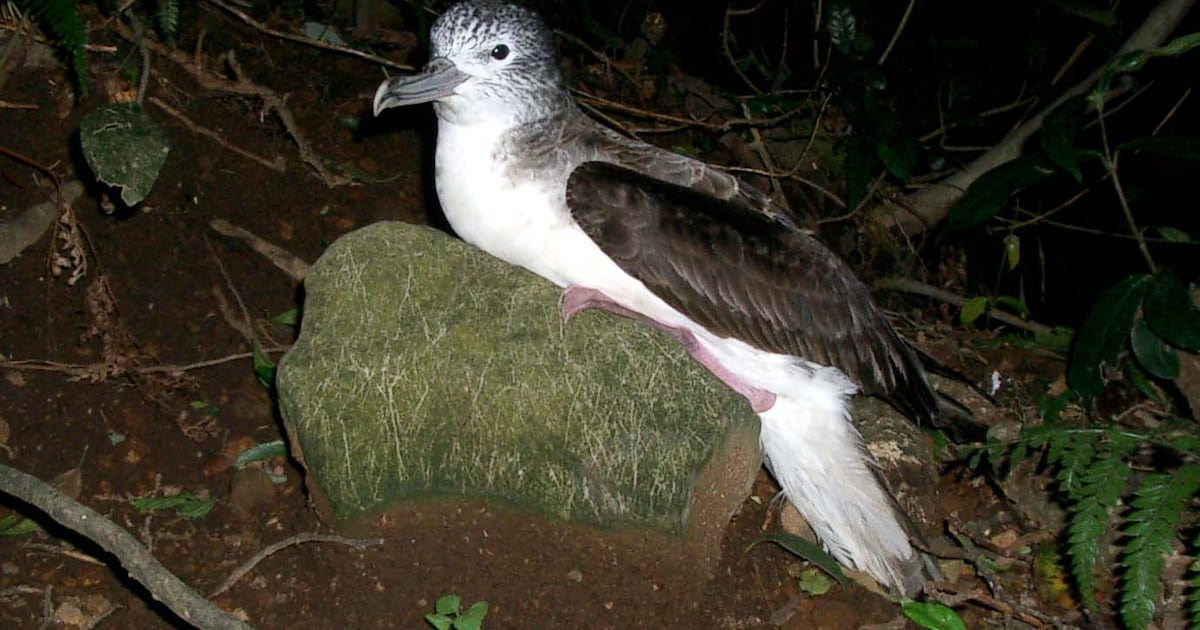Top Stories
Urgent Study: Japanese Seabirds Only Poop Mid-Flight for Ecology

BREAKING: A revolutionary study reveals that certain Japanese seabirds, known as streaked shearwaters (Calonectris leucomelas), only defecate while flying—an unusual behavior with significant implications for marine ecology. The findings, published this week in Current Biology, highlight a vital aspect of these birds’ habits that could influence ocean health.
Researchers at the University of Tokyo, led by Leo Uesaka, discovered that these birds defecate approximately every four to ten minutes during flight, releasing around 30 grams of feces every hour. This behavior not only helps them stay clean but also fertilizes the ocean, contributing essential nutrients to marine ecosystems.
The study indicates that seabird droppings are rich in nitrogen and phosphorus—nutrients crucial for supporting marine life. While the impact of these nutrients on terrestrial ecosystems is well-documented, their effects in the ocean, where these birds spend most of their lives, remain largely unexplored. With an estimated population of 424 million shearwaters, these birds could play a critical role in nourishing plankton and other marine organisms.
Uesaka’s team stumbled upon this intriguing habit while initially investigating how these seabirds take off from the ocean’s surface. By attaching small, backward-facing cameras to the bellies of 15 streaked shearwaters, they recorded nearly 200 instances of defecation, often occurring right after takeoff. “I was surprised that they dropped feces very frequently,” Uesaka stated in a press release on August 18, 2023. “I thought it was funny at first, but it turned out to be more interesting and important for marine ecology.”
Interestingly, the birds sometimes launched into the air solely to relieve themselves, often flying for less than a minute. This raises questions about their intentional avoidance of bathroom breaks while on the water, suggesting they may do so to prevent soiling their feathers or to evade predators.
The research team infers that this unique excretion pattern may serve multiple ecological functions. Uesaka emphasized, “Feces are important,” indicating a desire to further investigate the role of seabird droppings in marine environments.
As this study gains traction, it invites a broader conversation on the interconnectedness of wildlife and ocean health. The unusual defecation behavior of streaked shearwaters is not just a quirky fact; it could be a key factor in maintaining the delicate balance of marine ecosystems.
Stay tuned for more updates on this developing story, as researchers continue to explore the implications of seabird behavior on our oceans.
-

 World3 months ago
World3 months agoScientists Unearth Ancient Antarctic Ice to Unlock Climate Secrets
-

 Entertainment3 months ago
Entertainment3 months agoTrump and McCormick to Announce $70 Billion Energy Investments
-

 Science3 months ago
Science3 months agoFour Astronauts Return to Earth After International Space Station Mission
-

 Lifestyle3 months ago
Lifestyle3 months agoTransLink Launches Food Truck Program to Boost Revenue in Vancouver
-

 Technology2 months ago
Technology2 months agoApple Notes Enhances Functionality with Markdown Support in macOS 26
-

 Top Stories7 days ago
Top Stories7 days agoUrgent Update: Fatal Crash on Highway 99 Claims Life of Pitt Meadows Man
-

 Sports3 months ago
Sports3 months agoSearch Underway for Missing Hunter Amid Hokkaido Bear Emergency
-

 Politics2 months ago
Politics2 months agoUkrainian Tennis Star Elina Svitolina Faces Death Threats Online
-

 Technology3 months ago
Technology3 months agoFrosthaven Launches Early Access on July 31, 2025
-

 Politics3 months ago
Politics3 months agoCarney Engages First Nations Leaders at Development Law Summit
-

 Entertainment3 months ago
Entertainment3 months agoCalgary Theatre Troupe Revives Magic at Winnipeg Fringe Festival
-

 Politics1 week ago
Politics1 week agoShutdown Reflects Democratic Struggles Amid Economic Concerns











